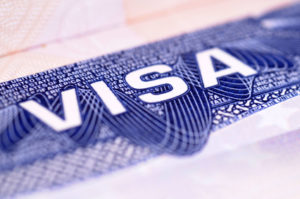Parole in Place
for Spouses and Stepchildren of US Citizens 
Explained in Plain English
The Department of Homeland Security has announced the new process to consider, on a case-by-case basis, Parole in place requests for undocumented spouses and stepchildren of U.S. Citizens who have lived in the United States for 10 years or more. USCIS will begin accepting applications for parole in place on August 19, 2024.
To be eligible for Parole in Place, the applicants must satisfy the following criteria:
- Be present in the United States without admission or parole (entered without inspection);

If it’s through marriage, you must be married as of June 17th of 2024.
- Have been continuously present in the United States for at least 10 years as of June 17, 2024;
- Have no criminal history; and
- Have a legally valid marriage to a U.S. citizen as of June 17, 2024.
In addition, DHS will join the Department of State in an effort to more efficiently facilitate certain employment-based nonimmigrant visas for eligible individuals, including Deferred Action for Childhood Arrivals (DACA) recipients and undocumented noncitizens, who have graduated from an accredited U.S. institution of higher education. By clarifying and enhancing the existing process, the Department of State’s policy will give U.S. employers increased confidence that they can hire the talent they need, and that they will be able to quickly get to work. DHS will implement the Department of State’s policy update.
 The parole in place program is essentially an application for admission to the United States via parole, thereby if approved, will allow you to file for permanent residence without having to depart the United States. In order to be considered for parole in place, an individual will need to file a form with USCIS along with supporting documentation to show they meet the requirements and pay a fee.
The parole in place program is essentially an application for admission to the United States via parole, thereby if approved, will allow you to file for permanent residence without having to depart the United States. In order to be considered for parole in place, an individual will need to file a form with USCIS along with supporting documentation to show they meet the requirements and pay a fee.
Additional information on the application process, required fee, and other key information will be detailed in a forthcoming Federal Register Notice. USCIS will reject any filing received prior to the publication of the Federal Register Notice.
Evidence of Parole in Place eligibility required includes the following documentation:
- Evidence of a legally valid marriage to a U.S. citizen as of June 17, 2024 – marriage certificate.

Call Today!
- Documentation of proof of identity, including expired documents may include:
- Valid state or country driver’s license or identification;
- Birth certificate with photo identification;
- Valid passport; or
- Any government issued document bearing the requestor’s name, date of birth, and photo.
- Evidence of your spouse’s U.S. citizenship, such as a passport, birth certificate or Certificate of Naturalization.
- Documentation to establish your continued presence in the United States for at least 10 years, as of June 17, 2024. While more information will be made available in the forthcoming Federal Register Notice and subsequent FAQs, examples of documentation could include copies of:
- Rent receipts or utility bills;
- School records (letters, report cards, etc.);
- Hospital or medical records;
- Attestations to your residence by religious entities, unions, or other organizations, identifying you by name;
- Official records from a religious entity confirming participation in a religious ceremony;
- Money order receipts for money sent into or out of the United States;
- Birth certificates of children born in the United States;
- Dated bank transactions;
- Automobile license receipts, title, or registration;
- Deeds, mortgages, or rental agreement contracts;
- Insurance policies; or
- Tax returns or tax receipts.
For noncitizen children of Parole in Place applicants,
evidence of eligibility could include:
- Evidence of the child’s relationship to the noncitizen parent, such as a birth certificate or adoption decree;
- Evidence of the noncitizen parent’s legally valid marriage to a U.S. citizen as of June 17, 2024 – marriage certificate; and
- Evidence of the child’s presence in the United States as of June 17, 2024.



